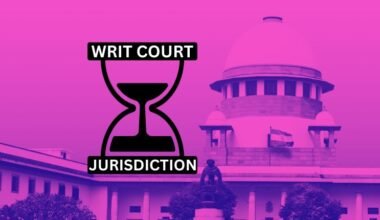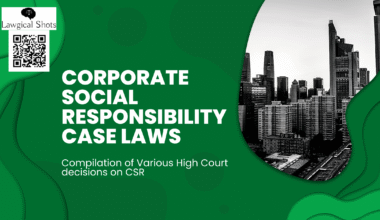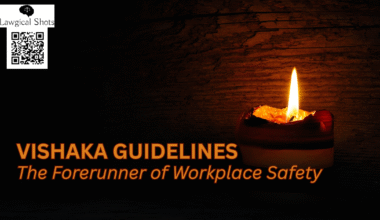The case law that follows is a Supreme Court judgment on protest petition under the Code of Criminal Procedure, 1973. The Apex Court recently held that the Magistrate should treat a Protest Petition as a complaint if the contents of the same do not constitute an offence. The Division Bench of Justice Vikram Nath and Justice Satish Chandra Sharma were dealing with a Criminal Appeal in Mukhtar Zaidi v. State of Uttar Pradesh and Anr. (decided on April 18, 2024).
Factual Background
The respondent lodged an FIR against the appellant which was followed by investigation. The Investigating Officer did not find evidence to substantiate allegations made in the said FIR. The same was informed to the Court and notices were issued to the informant, who in turn protested fairness in investigation. The Chief Judicial Magistrate rejected the Police Report under Section 173(2) of Criminal Procedure Code, 1973. The CJM further proceeded to take cognizance and directed for the matter to continue as a State case. The appellant was accordingly summoned.
The instant appeal challenged the order of Allahabad High Court dismissing the application under Section 482 of CrPC. The appellant had sought to quash summoning orders of the CJM pertaining to offences under Sections 147, 342, 323, 307, 506 of the Indian Penal Code, 1860.
Contentions on cognizance of Protest Petition
Appellant submitted that the CJM was relying upon additional materials – evidence produced by the informant along with the Protest Petition. Therefore, the CJM must have treated it as a private complaint under Section 200 of CrPC. It could not continue as a State case.
On the other hand, the State Counsel stated that the CJM only relied on material collected during the investigation and rejected the police report. He did not consider any additional evidence. Thus, he could take cognizance under Section 190(1)(b) of CrPC.
Analysis of the Apex Court
The Bench examined the order passed by CJM and found that he actually considered the Protest Petition and the supporting affidavits to conclude the investigation as unfair. The Court further highlighted that those affidavits made out a prima facie case for the CJM to take cognizance and summon the appellant herein.
CrPC Section 190 – Cognizance of offences by Magistrate
While discussing how a Magistrate should proceed under CrPC Section 190 after submission of a closure report by the Investigating Officer, the Court perused clauses (a) and (b) to Section 190(1) of CrPC. Here, the Court referred to the decision in Vishnu Kumar Tiwari vs. State of Uttar Pradesh (decided on July 9, 2019). The said decision reflected that the Magistrate in the instant case ought to treat the Protest Petition as a complaint and proceed as per CrPC Chapter XV.
Note: Section 190 of CrPC provides for the powers of Magistrate to take cognizance of an offence upon receiving a complaint, police report or information from any other person or having personal knowledge regarding commitment of an offence. The facts so complained, reported or informed have to constitute an offence.
Private Complaint under Section 200 CrPC
From the above decision, the Court observed that the Magistrate was at liberty to reject the said Protest Petition and supporting material. In such a case, the complainant would be at liberty to file a complaint afresh. Commenting on the complainant’s right to file a petition under Section 200 of CrPC, the Court clarified that the same is not taken away even if the Magistrate did not direct for such Protest Petition to be treated as a complaint.
Note: Section 200 of CrPC provides for examination of complainant and witnesses by the Magistrate. The Magistrate then has to reduce it in writing if the said complaint was not given in writing.
Decision
The Apex Court allowed the instant appeal and set aside the impugned orders passed by the CJM as well as the High Court. The Bench further kept it open for the Magistrate in the instant case to treat the Protest Petition as a complaint and proceed as per law under Chapter XV of CrPC.








